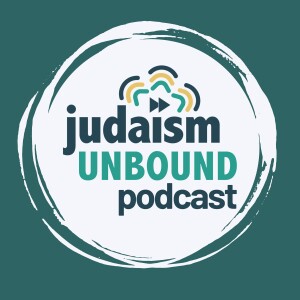
Episode 27: Who Wrote the Bible? - Richard Elliott Friedman
 2016-08-19
2016-08-19
Download
Right click and do "save link as"
Professor Richard Elliott Friedman joins Dan and Lex for a conversation about modern Biblical scholarship, which his book Who Wrote the Bible? brought to lay audiences in an accessible way nearly thirty years ago (and which had a major influence on Dan and Lex). Among the most influential books on Biblical literature of the 20th Century, Who Wrote the Bible? provides a scholarly overview of the authorship of the Torah through a lens known as the "Documentary Hypothesis." [1] Subsequently, Professor Friedman wrote additional books making these ideas available to non-experts. Along with co-hosts Dan and Lex, Professor Friedman dives deeply into his ideas and scholarship, their impact on the world, and more!
(0:01 - 13:46): Prof. Friedman begins shares a bit of his own personal narrative, and then explains some of the basics of the Documentary Hypothesis. [2] To flesh out his explanation, he outlines how two separate flood narratives were woven together into one story in the Book of Genesis (the story of Noah and the ark). [3] [4] (13:47 - 27:37): Prof. Friedman examines some of the ways that the Documentary Hypothesis can shed light on ancient political struggles. Specifically, he looks at a variety of stories that elucidate a tension between those Biblical authors who traced themselves back to Aaron and those who traced themselves to Moses. He also discusses the question of historicity -- the extent to which particular events or characters depicted in the Bible were historical or literary. [5]
(27:38 - 44:12): Dan brings up a novel (which we will explore in further detail on our next episode) entitled The Secret Book of Kings. He and Prof. Friedman look at the similarities and differences between the northern kingdom (Israel) and the southern kingdom (Judah), both through a historical lens and through the textual lens of the Bible, an important distinction that is significant to the plot and understanding of The Secret Book of Kings. [6] We close the episode by looking at another of Friedman's books, The Bible Now, which asks what the Bible has to say about contemporary issues, along with the broader impact of Who Wrote the Bible? on individuals, the Jewish community, and the world. [7] [8][1] You can purchase Who Wrote the Bible? on Amazon at this link.[2] Click here for a short, written overview of the documentary hypothesis that you can find online.[3] You can look at Prof. Friedman's presentation of both Noah stories, intertwined with one another, by clicking here (it is a download link, not a website).[4] Purchase The Bible With Sources Revealed, Friedman's book that separates the entire Torah into four sources, J, E, P, and D, here.
The Merneptah Stele. Image Credit: www.haaretz.com
[5] Friedman mentions the "Merneptah Stele." For more on this important archaeological discovery -- the oldest artifact mentioning the name "Israel" (the people, not the land or state), click here.[6] Dan mentions The Secret Book of Kings, a novel that he helped translate and bring to English-speaking readers. To pre-order it, click here, and to learn more about it, head to www.secretbookofkings.com.[7] To purchase Friedman's book The Bible Now, applying the Torah to contemporary political debates, click here.[8] You can find further biblical history or archaeology resources for further reading, listening, or viewing by clicking here.
view more
More Episodes
Episode 161: The Zohar - Daniel Matt
 2019-03-15
2019-03-15
 2019-03-15
2019-03-15
012345678910111213141516171819
Create your
podcast in
minutes
- Full-featured podcast site
- Unlimited storage and bandwidth
- Comprehensive podcast stats
- Distribute to Apple Podcasts, Spotify, and more
- Make money with your podcast
It is Free
- Privacy Policy
- Cookie Policy
- Terms of Use
- Consent Preferences
- Copyright © 2015-2024 Podbean.com




